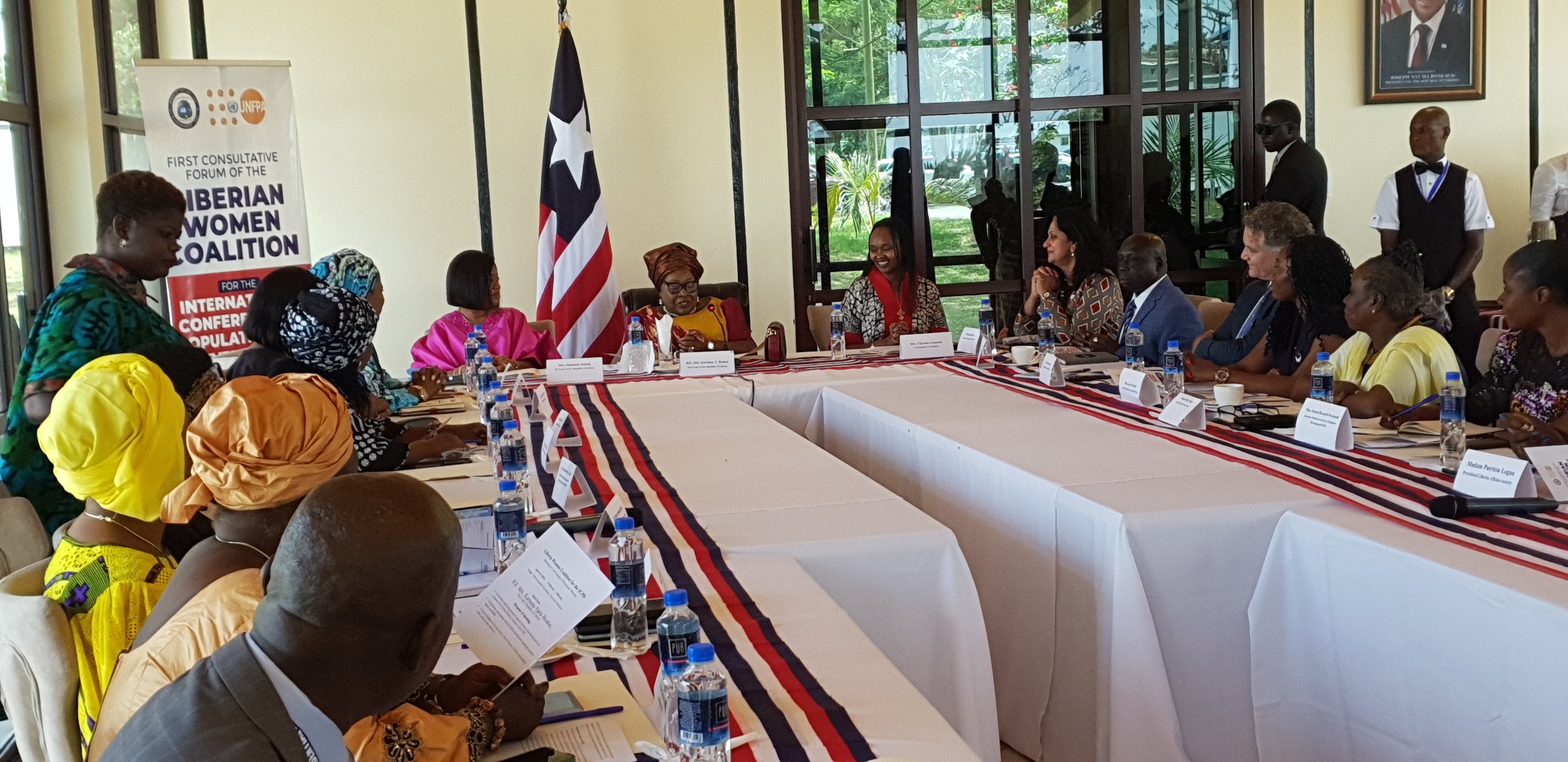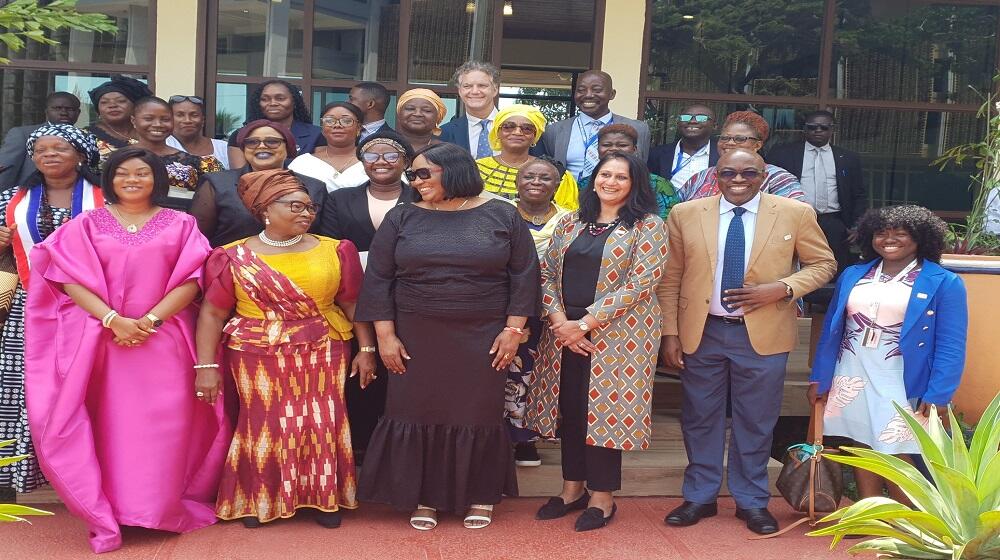Women leaders, led by the First Lady of Liberia, Mrs. Kartumu Y. Boakai, have resolved to use the power of their voices and inspire actions at local and national levels to reduce maternal and newborn deaths.
Speaking on April 18, 2024, when she hosted some imminent women during a consultative forum, Mrs. Boakai said the initiative was in support of the implementation of the International Conference on Population and Development (ICPD) plan of action.
She said: “Despite our successes, the specter of maternal mortality hangs over us. Too many of our sisters, our daughters, and our friends continue to be snatched away by preventable childbirth-related complications. The grim arithmetic of 746 maternal deaths over the past three years haunts me – 20 mothers lost each month, a precious life extinguished every other day. This, my friends, is not a statistic, it is a clarion call to arms, not military arms, but the collective force of our voices.”

and other prominent women to discuss efforts to promote women's sexual and reproductive health and rights. ©UNFPA Liberia
The First Lady of Liberia called for the community's collective support to address the pressing issue of maternal mortality, stressing that the loss of mothers impacts individual families and weakens the societal fabric. “Together, we can dismantle the social & structural barriers that prevent women & girls from achieving their potential,” she added.
Also speaking at the occasion, UN Resident Coordinator Christine N. Umutoni called for urgent attention to address Liberia’s maternal and newborn health challenges. “At this point in the world, Maternal health has become a matter of concern and must be confronted as a pandemic or emergency like COVID-19. Unless we deal with the family nucleus, we cannot talk about a nation,” she said.
The UN Resident Coordinator praised the First Lady for organizing the event and assured her of the United Nations' commitment to mobilize the appropriate resources to fund programme and actions to accelerate efforts to reduce preventable maternal and newborn deaths in Liberia.
At the same time, UNFPA Representative Bidisha Pillai said that when women have access to information and services that help them plan whether and when to have children and how many, they can better complete their education. “This increases women’s autonomy within their households and improves their earning power, strengthening their economic security and well-being and that of their families,” she added.
About the ICPD
In 1994, the landmark International Conference on Population and Development (ICPD) in Cairo transformed global thinking on population and development issues. It defined a bold agenda, placing people’s dignity and rights at the heart of sustainable development.
There, 179 governments adopted the ICPD Programme of Action. It affirmed that inclusive sustainable development is not possible without prioritizing human rights, including reproductive rights; empowering women and girls; and addressing inequalities as well as the needs, aspirations and rights of individual women and men.
ICPD set the standard for people-centred development, guiding national policies and programmes for the implementation of the Programme of Action by governments, in collaboration with parliaments and civil society, including women and youth-led organizations, the private sector, community groups and individuals at the grassroots level.


